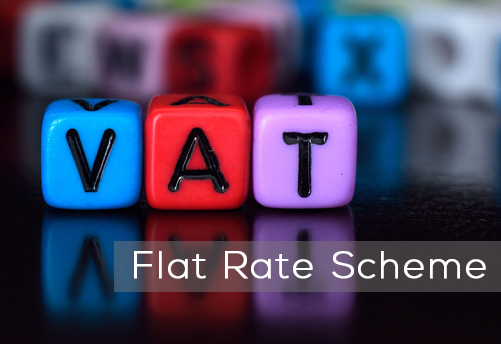News & Articles

CHANGES TO FLAT RATE VAT

Significant changes have been announced for the amount of VAT that many small businesses will have to pay.
This will affect businesses that use the VAT Flat Rate Scheme but which spend very little on goods, including raw materials - such as firms providing services.
The VAT Flat Rate Scheme simplifies businesses' record keeping, and makes it easy to work out the VAT they have to pay.
The proposed changes are the most important element of the Autumn Statement for this type of business.
Pre April position
The Flat Rate VAT Scheme (FRS) was set up by HMRC as a means to simplify and reduce the costs of compliance for small businesses. This meant that such businesses could apply a fixed percentage dependent upon the specific trade or profession they were involved in.
Under the FRS the business would charge full VAT rates to their clients when invoicing and therefore receive VAT at 20%. The business would then only pay the fixed percentage to HMRC i.e. if they fell within management consultancy they would pay only 14% of their invoiced value to HMRC.
The scheme does not permit recovery of input VAT other than in specific circumstances normally in relation to purchases of capital equipment with a value of more than £2,000.
Legislation
HMRC issued draft legislation in early December 2016 which introduced a new rate of 16.5% for ‘Limited Cost Traders’ (LCT) to take affect from 1st April 2017. A LCT is one whose VAT inclusive expenditure on goods is either:-
- less than 2% of their VAT inclusive turnover in a prescribed accounting period
- greater than 2% of their VAT inclusive turnover but less than £1,000 per annum if the prescribed accounting period is one year (if it is not one year, the figure is the relevant proportion of £1,000
- Goods, for the purpose of LCT, must be used exclusively for the purposes of the business but exclude the following items:-
- capital expenditure
- food or drink for consumption by the FRS business or its employees
- vehicles, vehicle parts and fuel (except where the business is one that carries out transport services -eg. a taxi business, and uses its own or a leased vehicle to carry out these services).
An additional downside to this test is that if you have goods that are used part for business and part private use should be totally excluded and not apportioned between business and private.
April onwards
From 1st April 2017, a LCT will have a choice to either remain as part of FRS and pay VAT to HMRC based on 16.5% or to be part of standard treatment VAT i.e. pay net VAT to HMRC having taken into account VAT on outputs at 20% and recover VAT on inputs where charged.
Under the anti-forestalling provisions, HMRC has restricted any possibility of a LCT continuing to use any lower FRS rates from 1st April 2017, therefore, action if not already taken should be taken now to avoid potential penalties.
If you are still within the first 12 months of VAT registration you will be able to continue with the 1% first-year discount so would pay only 15.5% for the remainder of the 12 month period.
If under the legislation you are a LCT then you need to go through the numbers and consider which is the best direction for you. The potential impact on a small business may not be significant and the additional costs involved in fully accounting for VAT under the standard rate may well be more than the VAT involved especially as you will need to provide evidence of any expenditure on which you make a reclaim.
All such businesses will have their own unique situation and we would recommend you speak with your accountant or call the VAT advice line should you need help making a decision.
for more information please contact Paul Mckenzie, Head of Tax at Qdos Vantage Ltd on 01458 850 000 or get in touch with us at enquiries@ga-uk.org.

